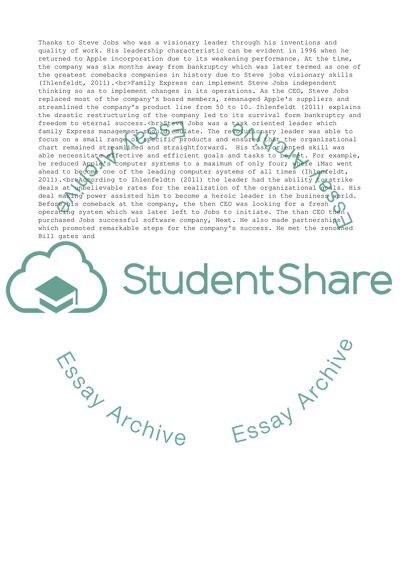Cite this document
(Reflection of the High performance organizations Essay, n.d.)
Reflection of the High performance organizations Essay. https://studentshare.org/management/1877250-reflection-of-the-high-performance-organizations
Reflection of the High performance organizations Essay. https://studentshare.org/management/1877250-reflection-of-the-high-performance-organizations
(Reflection of the High Performance Organizations Essay)
Reflection of the High Performance Organizations Essay. https://studentshare.org/management/1877250-reflection-of-the-high-performance-organizations.
Reflection of the High Performance Organizations Essay. https://studentshare.org/management/1877250-reflection-of-the-high-performance-organizations.
“Reflection of the High Performance Organizations Essay”. https://studentshare.org/management/1877250-reflection-of-the-high-performance-organizations.


